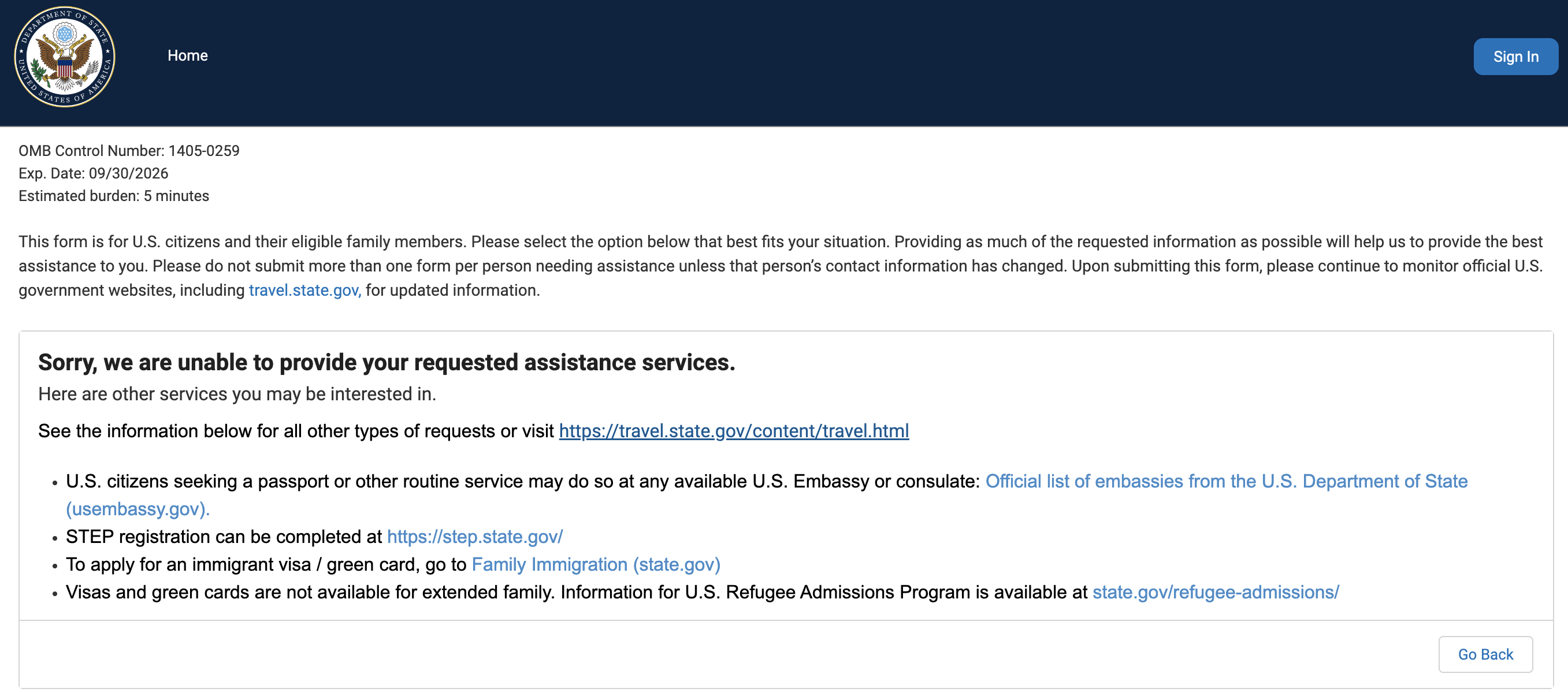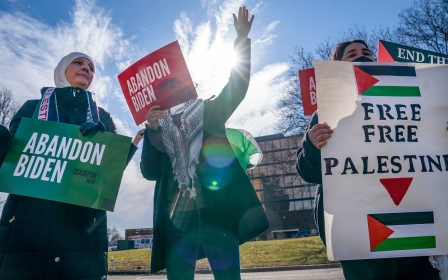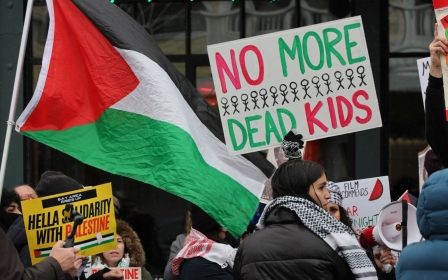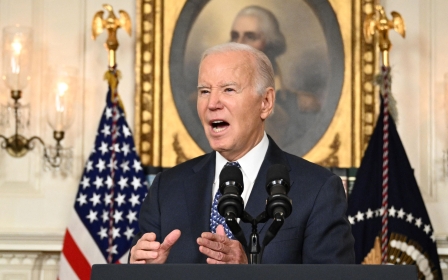State Department ‘discrimination’ traps relatives of Palestinian Americans in Gaza
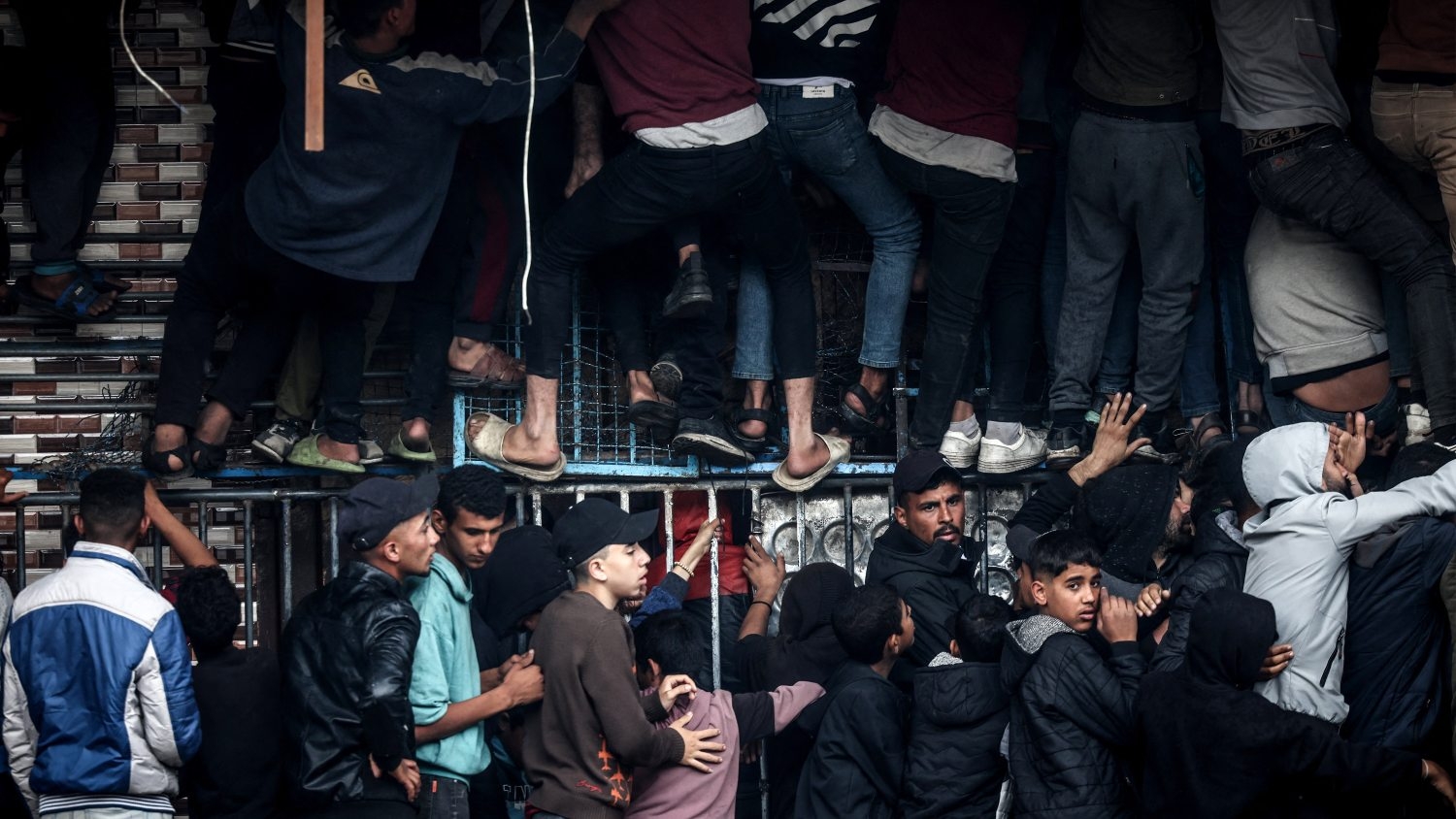
Eight-year-old Shahd was sheltering with her parents and more than 30 other Palestinians when an Israeli bomb struck their building in northern Gaza, burying them under concrete blocks and bits of twisted metal.
As Israeli jets circled the skies and continued to pound the besieged enclave, neighbours, who saw and felt the devastating strike, scrambled to the blast site to help retrieve survivors.
Clawing through the debris, trying to find as many survivors as they could, Shahd was recovered after a two-hour effort - albeit bloodied and bruised.
But her parents, like everyone else around in her home, were found dead under a heap of crumpled concrete. In an instant, Shahd's life was forever changed.
When Shahd's uncle, Hani Dawoud, a US citizen based in Cupertino, California, heard the news, his heart sank. He knew he now had to do everything possible to get both her and his ageing parents, who had sought shelter in another part of Gaza, out from the enclave.
New MEE newsletter: Jerusalem Dispatch
Sign up to get the latest insights and analysis on Israel-Palestine, alongside Turkey Unpacked and other MEE newsletters
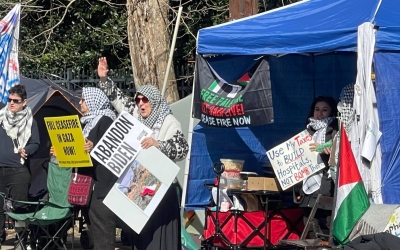
"I started making my calls because I know she was in the south and an evacuation should be doable," he said.
But for weeks since then, one major barrier has stood in the way of bringing his niece to safety: the US government.
Since the 17 November air strike, Dawoud has repeatedly contacted the State Department to help get her Shahd out of Gaza and into the US.
But the State Department's response hasn't changed from the scripted response they first received.
"They can preach about guidelines all they want, but there are people that are vulnerable and fit a very humanitarian criteria. And they are just turning a blind eye to them," Dawoud told Middle East Eye.
As Dawoud wrangles with the State Department, Shahd is still languishing in Gaza - struggling to process what happened and why.
"She's living a nightmare, constantly asking about her mother or father," he said, adding that Shahd regularly wakes up in the middle of the night screaming and crying about what happened.
'Not based in law'
Dawoud's experience is one faced by dozens of other Palestinian Americans who have been trying for months, in vain, to get their families out of Gaza amid Israel's looming invasion of Rafah.
"The most annoying thing is when they start talking about how they are against the displacement of people. It means that in that context, you are okay with them dying. Because if they are not displaced right now, they can die at any minute," Dawoud said.
The current process for getting the families of US citizens as well as legal permanent residents out of Gaza begins with those individuals applying to the State Department on their relatives' behalf by using an online crisis intake form.
The State Department then reviews that form, and if approved, it sends that list to Egypt and Israel for further review.
Once that review is completed and approved, the list is sent over to Palestinian authorities in Gaza, who publish a daily list of the individuals approved to leave via the Rafah border crossing.
The labyrinthine process was described by Sammy Nabulsi - a lawyer from Boston who has refocused his work on helping Palestinian Americans get their families out of Gaza - as similar to "walking through mud while boulders are coming at you".
'There's no legal basis to have to have carved this narrow category'
- Sammy Nabulsi, lawyer
"You have a population here that is literally in a cage," he said, adding that the US government has much more leverage to get American relatives out of the besieged enclave than it lets on.
The State Department told MEE that it has successfully helped more than 1,600 Palestinians "including US citizens, Lawful Permanent Residents (LPRs), and their family members" leave Gaza and enter Egypt via the Rafah crossing.
"We are aware that this is a difficult situation for US citizens, LPRs, and their families who are seeking to depart Gaza, and we are doing what we can to assist," the State Department told MEE.
Nabulsi says that in the cases in which an American is trying to get relatives out of Gaza that fall under the categories set by the State Department, he has had success in getting them out of Gaza.
However, Nabulsi says whenever there is a case in which the relative falls just outside the parameters set by the US, there is no flexibility on the part of the Biden administration. The lawyer said this rigidness does not have any sort of legal basis to justify it.
"Hani Dawoud is committed to taking care of his niece and bringing her in, and the State Department won't put her on the list. This is completely tragic, it makes no sense," Nabulsi told MEE.
"The State Department has made a decision that's not based in law. There's no legal basis to have carved this narrow category."
As it stands, only US citizens, their spouses, parents and unmarried children under the age of 21 are permitted by Washington to leave Gaza. Any siblings under 21 can also be approved to leave, but only if their US citizen sibling is also under the age of 21, according to Nabulsi.
MEE asked the State Department whether it would consider expanding the category of family members of US citizens allowed out of Gaza, but the department said it had no further comment.
Nabulsi said he has been working with dozens of families who have relatives stuck in Gaza - brothers, sisters, nieces and nephews - who are not eligible to leave Gaza due to the conditions set by the US government.
"The gatekeeper for Americans is the United States government, it's the State Department," Nabulsi said.
"There's no attention given to case-by-case situations that really do need some flexibility on the part of the State Department just from a human perspective. Again, the people making the asks are US citizens."
In some cases, the Palestinian Americans are the only relatives that these residents in Gaza have left due to the massacres they have suffered by the Israeli military.
For Dawoud, his niece was able to get to his parents who are also still stuck in Gaza.
The three of them are in Rafah, ten minutes away from the Egyptian border. Because his parents fit the category of those relatives of US citizens allowed to leave, Dawoud is hoping they'll be able to bring Shahd with them to the border. He says he's heard that border guards will allow young children accompanying adults to be allowed passage.
But with his parents still not on the list despite US approval, and Israel's invasion of Rafah looming, the situation is dire. It's unclear whether a security check from Egypt or Israel is holding them back.
"Our hope was - we heard the stories of minors who can go with their parents or grandparents even if their names didn't appear. But the problem is even my parents are not appearing on any list," he said.
'State Department is not trying'
The US State Department told MEE that it's doing everything it can to assist the families of both US citizens and Lawful Permanent Residents in Gaza. But lawyers working on these cases like Nabulsi and congressional offices who are receiving inquiries from constituents about their relatives in Gaza describe the State Department's efforts as lacklustre.
"I worked assisting during the Afghan evacuation after Kabul. And that was a disorganised mess, but it was obvious that the State Department was trying," said one congressional aide, who spoke to MEE on the condition of anonymity.
"This is a disorganised mess and it's incredibly obvious the State Department is not trying. It is insane."
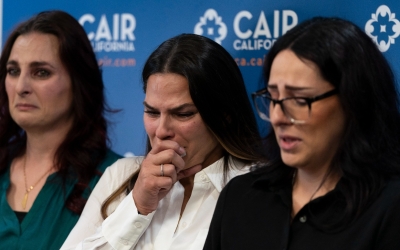
The aide said that there have been no clear lines of communication between the State Department and congressional offices about how to get people out of Gaza.
The aide's congressional office said they were not made aware that there was a State Department task force created to address the war in Gaza. They only found out in January, a month after it was disbanded.
The State Department confirmed that its Israel-Hamas Task Force was disbanded on 8 December 2023.
"The suspension of Task Force operations reflected a change in requirements, and in turn, a changing choice of tools as we continue our sustained attention to this crisis, including to the safety and security of US citizens," the State Department said.
Nabulsi, the lawyer from Boston, noted that the initial intake form on the State Department's website doesn't work, and now Palestinian Americans are being told to directly email the US embassy in Jerusalem.
If their relatives don't meet the criteria, they shouldn't even bother trying since they won't get a response.
"They basically are saying if you're Palestinian American, your [US] passport doesn't matter," the congressional aide said.
"It's a beautiful portrait of discrimination by the State Department."
MEE tried filling out the crisis intake form on the State Department website but received a message saying it could not be completed.
Selective limits of US citizenship
The contrast between how Israeli Americans were immediately jettisoned out of the country after war broke out on 7 October and the path Palestinian Americans have had to take has been described as stark.
"Despite very little movement - and it continues to be very difficult - the United States very quickly and in the earliest days of the conflict provided a number of means to get US citizens and relatives out of Israel through hourly chartered flights and cruise ships, and you name it," Nabulsi said.
"Both from the perspective of getting people out and then finding a pathway to give these people a safe haven in the United States with their own family members, the Palestinian Americans and their family members have been treated totally different."
'It became common knowledge that these people [the US government] don't think we are anything beyond numbers'
- Shahd, an eight-year-old Palestinian in Gaza
On Wednesday, a group of 16 US Senators, led by Cory Booker, sent a letter to the Biden administration, imploring it to expand the categories of American relatives that can be allowed permission to leave Gaza.
For Dawoud, one of the reasons he worked towards getting citizenship was so he could get his family out of Gaza.
"It's disappointing to say the least, because the work towards US citizenship was a choice that I made. And it was a choice based on the values that this country represents," he said.
"But then, if you expect to show your faith and respect to that country that you're becoming a citizen of, you also have rights. And one of the basic rights is protecting your loved ones."
Since the war broke out in Gaza, Israel has killed more than 28,000 Palestinians, the majority of them women and children, and has levelled entire residential neighbourhoods and laid siege to numerous hospitals.
Shahd, who is still recovering from wounds from an Israeli air strike, told her uncle that children in Gaza have come to learn quickly that the US government only sees Palestinians as numbers.
"For kids who are born and living there [in Gaza], it became common knowledge that these people [the US government] don't think we are anything beyond numbers," Dawoud recalled his niece saying.
Middle East Eye delivers independent and unrivalled coverage and analysis of the Middle East, North Africa and beyond. To learn more about republishing this content and the associated fees, please fill out this form. More about MEE can be found here.


